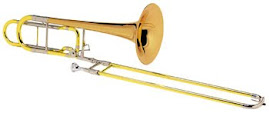“Angels We Have Heard on High” (1937) pg. 238
Words: Traditional French Carol (1862)
Music: Arranged [1937] by Edward Shippen Barnes (1881 - 1958)
According to the story of the first Christmas, it was the shepherds tending their flocks near Bethlehem to whom the angels first gave the news of the baby Jesus’ birth. And so, in medieval times shepherds who found themselves minding their little herds in the wintry mountains of southern France on Christmas Eve remembered the story of that first birth and the angels who sang of it.
They called one to the other, each from his own peak, singing the good news as the angels had sung so long ago, until finally the mountaintops themselves rang with a glorious patchwork of echoing voices.
In this favorite carol the music probably comes from a 17th or 18th century French carol, as does the text. But the back-and-forth “Gloria” refrain is probably based on a much older phrase of music, perhaps a bit of plainsong chant from the Church’s earlier days. The “gloria’s” in the chorus mimic the echo sound of the shepherds’ voices as they sang from the mountaintops. The combination of tune and text was not published, so far as we know, until it appeared in a carol collection in 1855. Edward Barnes harmonized it, as we sing it today, in 1937.
Words: Traditional French Carol (1862)
Music: Arranged [1937] by Edward Shippen Barnes (1881 - 1958)
According to the story of the first Christmas, it was the shepherds tending their flocks near Bethlehem to whom the angels first gave the news of the baby Jesus’ birth. And so, in medieval times shepherds who found themselves minding their little herds in the wintry mountains of southern France on Christmas Eve remembered the story of that first birth and the angels who sang of it.
They called one to the other, each from his own peak, singing the good news as the angels had sung so long ago, until finally the mountaintops themselves rang with a glorious patchwork of echoing voices.
In this favorite carol the music probably comes from a 17th or 18th century French carol, as does the text. But the back-and-forth “Gloria” refrain is probably based on a much older phrase of music, perhaps a bit of plainsong chant from the Church’s earlier days. The “gloria’s” in the chorus mimic the echo sound of the shepherds’ voices as they sang from the mountaintops. The combination of tune and text was not published, so far as we know, until it appeared in a carol collection in 1855. Edward Barnes harmonized it, as we sing it today, in 1937.
Meanwhile…1937…70 years ago…in the United States…
U. S. President: Franklin D. Roosevelt…Vice-President: John Garner
Average prices: Bread: 9¢/loaf, Milk: 12¢/qt., Eggs: 56¢/dozen,
Car: $675, Gas: 20¢/gal. Stamp: 3¢, Average Income: $1,789/year
Best Actor: Spencer Tracy…Favorite songs: ‘The Dipsy Doodle’ by Tommy Dorsey’… ‘The Moon Got in my Eyes’ by Bing Crosby…’Boo Hoo’ by Guy Lombardo
The 1st Santa Claus Training School opened in Albion, NY
Walt Disney’s ‘Snow White & the 7 Dwarfs’ movie was released
The Social Security system began levying taxes on workers’ wages
Cartoon characters Daffy Duck, Elmer Fudd and Petunia Pig debuted
Pierce Arrow Auto Company went out of business after battling out of receivership
Rev. James W. Reis was pastor of Sheridan Methodist Church
Ref. The Sheridan Settler Cyberhymnal RDM TanBible DmarieCapsule WarnerBros












No comments:
Post a Comment